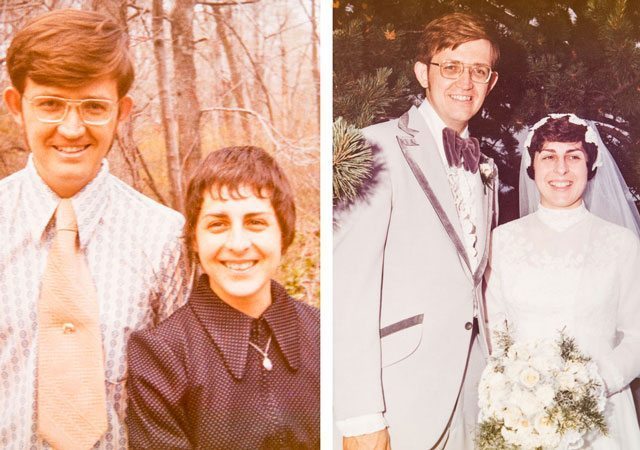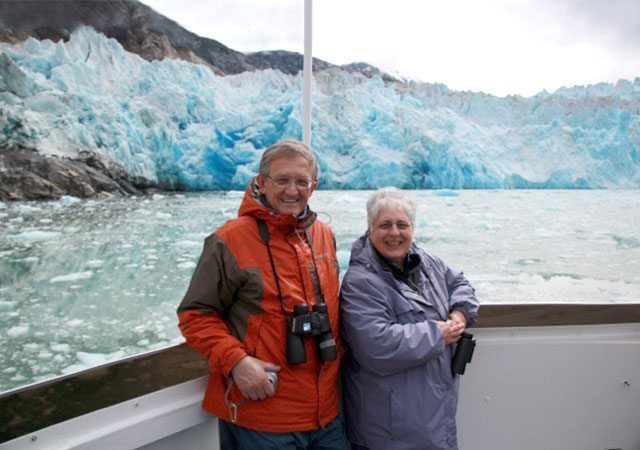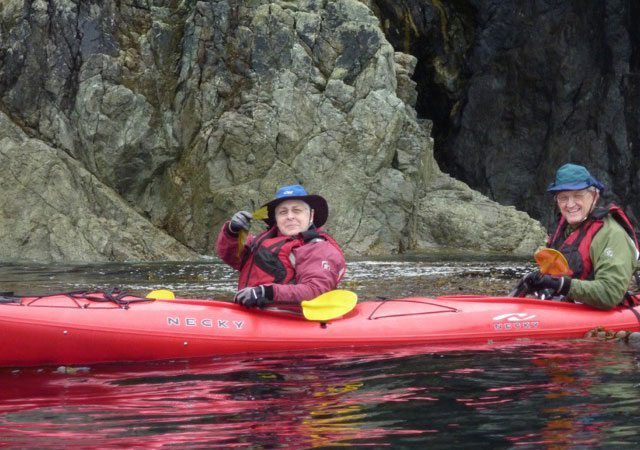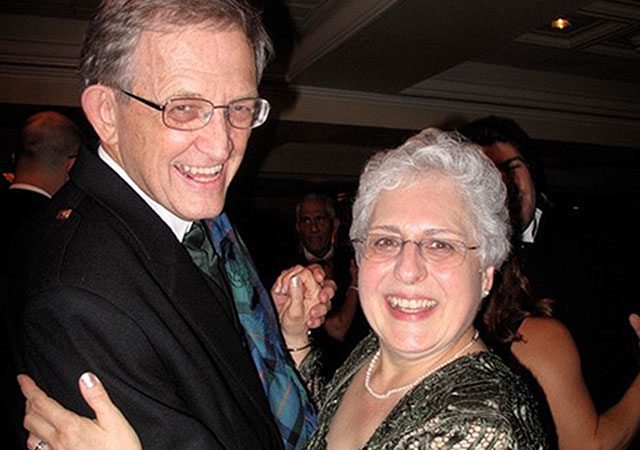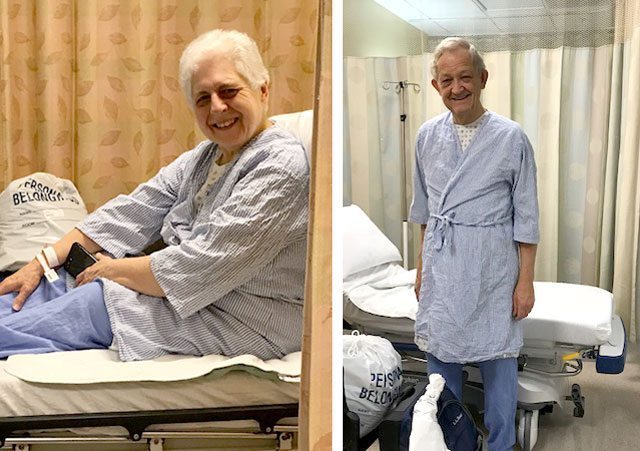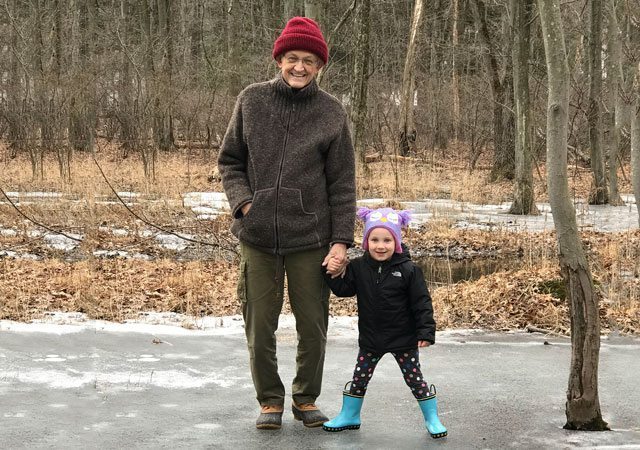How a Wife’s Kidney Donation Saved Her Husband’s Life
Joan McComas was determined to save Bill’s life with her kidney donation — if only they could find a hospital willing to do the transplant.
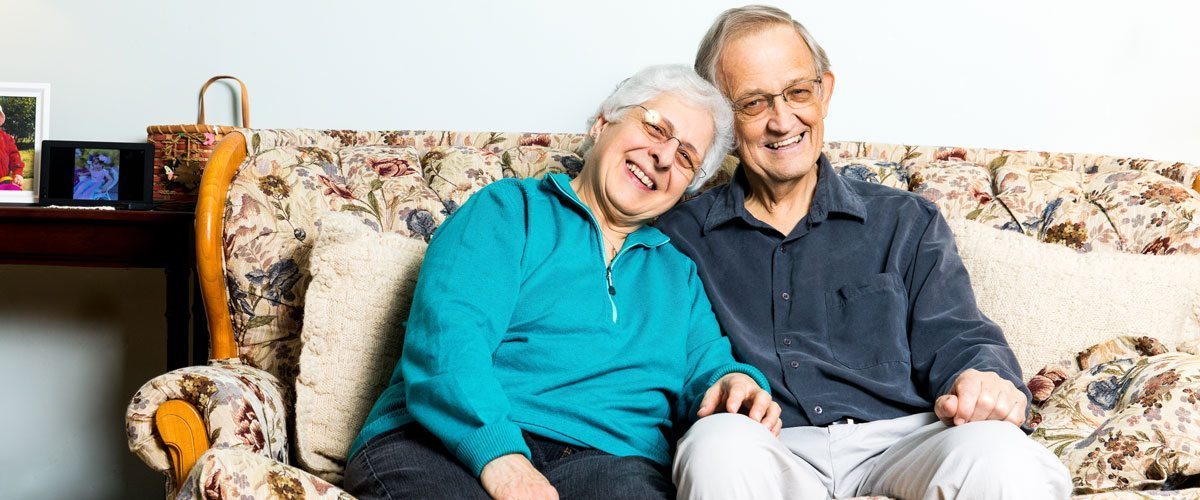
For Bill McComas, finding a matching kidney donor wasn’t the challenge it is for most patients. Most people in need of a lifesaving kidney transplant in the United States wait an average of 3.6 years, according to the National Kidney Foundation, and many, including some in the New York metro area, face even longer waits.
But Bill, whose disease caused loss of renal function, had a compatible donor at the ready: his wife, Joan. “I look at it this way: She owed me the kidney,” Bill says lovingly, “because 42 years ago, I gave her my heart.”
For Joan’s part, there was no hesitation about becoming her husband’s donor. “I think that’s the only reason he married me,” she jokes, “because he knew that he’d need my kidney one day.”
Yet their love — and test results confirming that Joan was a match — wasn’t enough to ensure a transplant. The couple faced another challenge: finding a hospital and medical team that would perform it.
Although Bill, 74, and Joan, 71, had been healthy and active throughout their lives, three hospitals rejected the couple for transplant surgery, citing Bill’s health in one case and, in two cases, Joan’s age.
That meant that after four years of medication and dialysis, the McComases were worried Bill might never receive the transplant he needed.
“There was a constant thought in the back of my mind,” Bill says, “that I’ll probably be on dialysis the rest of my life.”
A Match Made in Chemistry Class
The chemistry between Bill and Joan began, appropriately, in an organic chemistry lab. Bill was the lab instructor at Upsala College, and Joan was the bright, attractive student who caught his attention. By the end of the semester, Bill finally worked up the nerve to ask her on a date.
Married in 1975, the couple embarked on a lifetime of travel and adventure, from a honeymoon spent canoeing in Minnesota to camping trips with their two children to later trips kayaking in Alaska and exploring Scotland.
Before his kidney problems worsened, Bill was a walker and a Mr. Fix-It around their home in Denville, New Jersey. He spent free time tending to his yard and to his granddaughter, who lives next door.
In 2012, he felt as healthy as ever and had recently retired from his career as a chemist at a pharmaceutical company. But routine blood tests led to further testing and a surprising diagnosis: pauci-immune glomerulonephritis, a syndrome that causes a rapid loss of kidney function.
After trying medication, Bill began 18 months of peritoneal dialysis at home each night and eventually, when his condition deteriorated, during the day. Peritoneal dialysis removed waste from his body, doing the job his kidneys couldn’t adequately perform.
But Bill wasn’t his normal self; he felt winded on walks and was too tired for his usual house projects. Over time, the physical symptoms took an emotional toll, too. Joan noticed her husband becoming quieter and less engaged.
“You kind of retreat into yourself,” Bill says. “Mentally, I was just exhausted.”
Rejection After Rejection
By 2015, doctors determined that only a new kidney could improve Bill’s health.
They were initially accepted for a transplant at a local hospital, which determined that Joan was a match. But later, they learned that Bill had been dropped from the program.
While the hospital cited Bill’s “comorbidities,” which means the presence of other health conditions, Bill and Joan suspected that the staff considered them too old.
Another hospital wouldn’t test Joan because of her age, which exceeded the program’s maximum donor age of 65.
And at a third hospital, they were told the donor age cutoff was even lower: 60.
As scientists, they were frustrated that hospitals disqualified them on age alone. Joan, who is a medical writer at a pharmaceutical company, felt that age shouldn’t have been a factor.
“If you go through testing and, physiologically, you meet the requirements needed for transplant or donation, I don’t understand why it should be a problem, especially with people living longer and being active,” Joan says.
In fact, thousands of people age 65 and older undergo a kidney transplant every year. More than 900 such seniors received a kidney from a living donor, and 2,757 received a transplant from a deceased donor in 2017, according to the national Organ Procurement and Transplantation Network. Last year, 354 living donors 65 or older donated a kidney.
Despite their setbacks, the couple were confident that they could find a less-restrictive transplant program. But as Bill felt increasingly fatigued, sometimes questioning the value of getting out of bed, they couldn’t help but consider worst-case scenarios.
On an average day, 13 people die waiting for a kidney transplant, according to the National Kidney Foundation.
“You feel dark,” Bill says. “You’re thinking, how much longer do I have to go before something happens?”
Joan was more determined than ever. “I’m stubborn,” she says. “He’s my best friend. I want him around for a while.”
Determination and Devotion
The McComases’ search ultimately led them to NewYork-Presbyterian/Weill Cornell Medical Center in September 2017. NewYork-Presbyterian performs more solid organ transplants than any other hospital nationwide, including more than 400 kidney transplants annually.
Dr. Sandip Kapur, who leads the kidney transplant program at NewYork-Presbyterian/Weill Cornell, was optimistic about the couple’s chances for a successful transplant. NewYork-Presbyterian determines eligibility for both transplantation and donation based on a number of factors, such as health history and the results of a comprehensive medical examination and a psycho-social evaluation, including adherence with medication and treatment regimens.
But while the screening is stringent, NewYork-Presbyterian doesn’t set upper age limits on kidney recipients or donors.
“Dr. Kapur’s response was, ‘What’s the problem? Why can’t we do this?’” Bill says. “He saw absolutely no problem with doing the transplant.”
“We have transplanted people into their 80s, and our patients have received living donor kidneys from donors who were well into their 70s,” says Dr. Kapur. “Obviously, at some point, age does become a factor because with age comes a whole host of issues.”
But, he continues, “we’ve taken the approach that we recognize that the American population is aging. I don’t look at the people who come here in a chronological way. I look at them in a physiological way. There are some people in their 60s who physiologically look like they’re in their 40s.”
Encouraged by the positivity of the transplant and donor teams, Bill and Joan had more jokes than heartfelt goodbyes as they prepared for surgery on January 11, 2018.
“You’re going to wake up peeing like a girl,” Joan told her husband as she headed for the operating room.
The day after the transplant, as they walked the hallways of the hospital together, the couple was amazed that Bill’s spirits and appearance had improved so quickly.
“I was surprised how much better he looked already — his color, his disposition,” Joan says.
Dr. Kapur was pleased at how quickly both patients recovered.
“Mrs. McComas is a really healthy lady and sprang back quickly after her operation. When I saw her a couple of weeks after her operation, anyone would be hard-pressed to tell that she had just undergone a major operation,” he says. “Mr. McComas really just flew through the operation and recovered equally well. They’re both thriving.”
The McComases credit the NewYork-Presbyterian/Weill Cornell staff — from the nurses who signed a get-well card to the friendly cleaning crew — for being supportive and upbeat as the couple recovered from surgery.
“These people care about you; they’re interested in your health and they want to help you,” Bill says. “It’s not a bunch of people just doing their job.”
Says Joan, “People were courteous and more than helpful and compassionate, no matter who we interacted with, regardless of their position on the staff.”
Dr. Kapur credits Joan for her determination and her devotion to her husband.
“The fact that these people had gone to three other programs and were still pursuing a way to have this happen is a testimony to Mr. McComas’ wife,” Dr. Kapur says. “To me, it was clearly evident that she was motivated by her love for him to make this happen.”
[After the transplant] the change in him was like night and day. I finally got my husband back.
Joan McComas
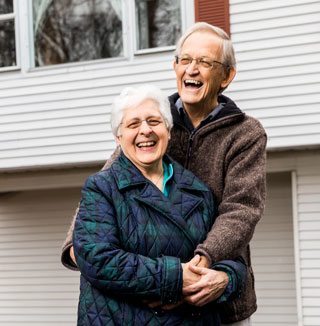
Back to Life
Prior to surgery, Bill had been muddling through each day. But as soon as the day after surgery, he noticed his energy coming back and he felt like being active again.
When he returned home four days after the transplant, even his 3-year-old granddaughter noticed the difference, asking, “Poppy, you can sit on the floor and play with me now?”
“It was like somebody just threw a switch, from feeling bad to feeling good,” Bill says.
“The change in him was like night and day,” adds Joan. “I finally got my husband back.”
Soon after the transplant surgery, the McComases began resuming the life they had before Bill’s illness: walking, biking, vacations on Cape Cod, and spending time with their grandchildren.
While Bill visits NewYork-Presbyterian/Weill Cornell for follow-up visits with his care team yearly, doctors have placed no long-term restrictions on his activities.
After the hospital rejections, Bill worried he would be on dialysis for the rest of his life. He was sure that the trip he and Joan took to Scotland in 2015 would be his last.
That summer they returned to Scotland for an international gathering of Bill’s Scottish “clan.”
Bill and Joan are thankful that the transplant has given them more active years with their family and each other. Since 1970, they’ve been a team — sharing interests and personalities, along with a willingness to make sacrifices.
“We’ve shared a lot over the years and we have plans for the future,” she says. “You want to be around as long as you can and be as healthy as you can be. I want to be able to share him with our grandchildren. We have plans, things to do, and new adventures in ‘life after transplant!’”
To learn more about our kidney transplant program, visit here.

